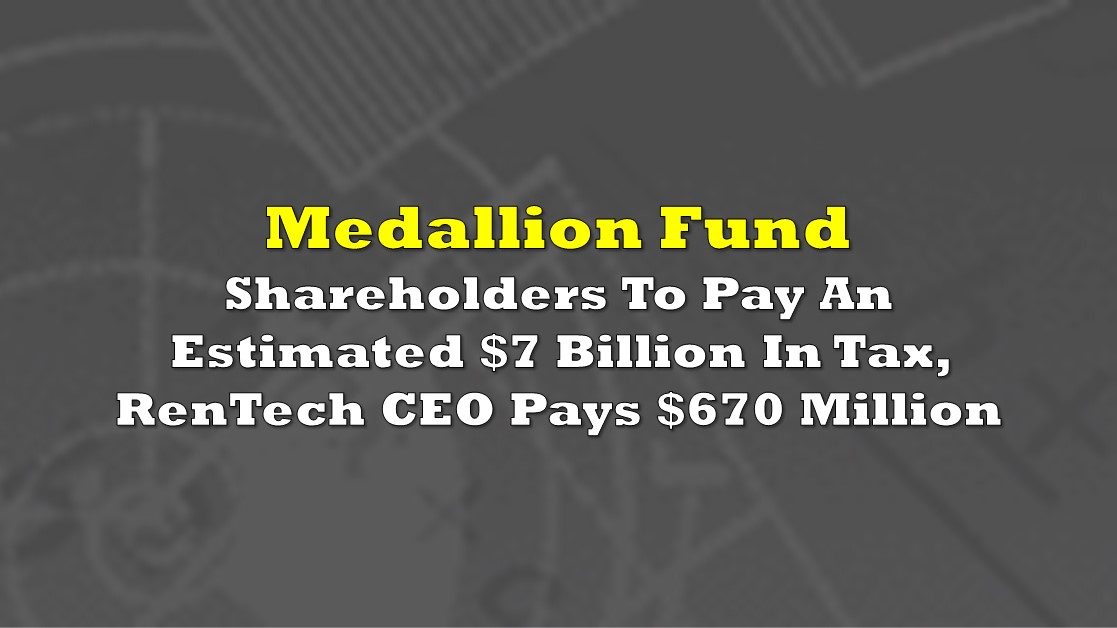The executives behind one of the largest and most profitable quantitative hedge funds, Renaissance Technologies or RenTech, have settled an IRS dispute for up to $7 billion, with the founder James Simons, paying an additional $670 million in a “settlement payment.”
RenTech was founded in 1982, and in 1988 it created one of the most profitable and now flagship funds, called the Medallion fund, which has returned 39% before fees over a 30 year period of 1988 to 2018. RenTech currently states that they have $165 billion in assets under management as of April of 2021, but this number includes leverage. The company also has 3 other funds, Institutional Equities Fund, Institutional Diversified Alpha, and
Institutional Diversified Global Equities.
On September 2, Renaissance sent out a letter to investors, letting them know that they have settled a “longstanding dispute with the Internal Revenue Service regarding the tax treatment of certain Medallion option transactions during the years 2005-2015.” This settlement only affects investors in the Madellion fund.
It seems that the IRS did not agree with the Medallion fund’s use of options to hedge underlying equity positions. They say that these options “provided Medallion the ability to receive the value of appreciation in certain portfolios of securities positions, but protected Medallion against declines in excess of the premiums it paid on the options.”
Medallion says that the IRS came to the conclusion that the gain on the underlying equity should be taxed at the short-term capital gains rate, as “these portfolios generally involved positions held for less than a year.” And that the options being used to hedge be taxed at the long-term capital gain rate. Instead of what Medallion was doing, which seems to be lumping them together and taxing both the equity and options at the lower long-term capital gain rate.
The IRS and RenTech have come to a resolution that comes in the form of two groups. The first is group 1, which only consists of 7 people on the Board of Directors. The IRS will convert 100% of the individual’s shares of reported long-term capital gains attributable to the options to short-term capital gains between the years 2005-2015. While group two, which consists of an unnamed number of shareholders, the IRS will convert 80% of the individual’s shares of reported long-term capital gains attributable to the options to short-term capital gains between the years 2005-2015 – leaving investors with hefty tax bills.
Information for this briefing was found via Sedar and Refinitiv. The author has no securities or affiliations related to this organization. Not a recommendation to buy or sell. Always do additional research and consult a professional before purchasing a security. The author holds no licenses.




